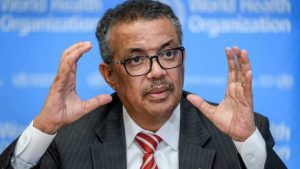

World Health Organization (WHO) Director General, Tedros Adhanom Ghebreyesus, has raised the alarm over the escalating global dengue crisis, reporting that cases have surged dramatically since 2021.
In the first eight months of 2024 alone, over 12.3 million cases were recorded, with more than 7,900 deaths, nearly doubling the 6.5 million cases documented throughout 2023.
While dengue often results in high fever and body aches, most cases are asymptomatic, and WHO estimates that between 100 million and 400 million people are infected annually.
The disease, transmitted by Aedes aegypti mosquitos, has rapidly expanded as climate change, poor urban planning, and inadequate water and sanitation infrastructure exacerbate its spread. Additionally, increased global travel has contributed to dengue becoming endemic in over 130 countries.
WHO estimates that around four billion people worldwide are currently at risk of contracting dengue and other arboviruses, such as Chikungunya and Zika, with projections indicating this number could rise to five billion by 2050.
To address this growing crisis, WHO has laid out a comprehensive plan aimed at enhancing global coordination.
The plan emphasizes disease surveillance, laboratory work, improved vector control measures, and the development of more effective treatments and vaccines. However, to bring this strategy to life, the organization is seeking $55 million in funding over the next year.
Ghebreyesus stressed the need for collective action: “From maintaining clean environments to supporting vector control and providing timely medical care, everyone has a role to play in the fight against dengue.”
He added, “This plan is a roadmap to reverse the tide of this disease, protect vulnerable populations, and move towards a healthier future.”
By fostering a united global effort, WHO aims to not only combat dengue but also reduce the impact of other Aedes-borne diseases.





Leave a Reply
View Comments